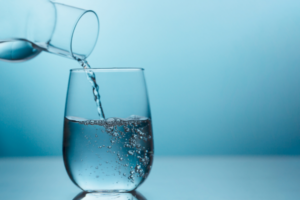
Guide to Dehydration Symptoms and Effective Rehydration
August 20, 2024
Dehydration occurs when the body loses more fluids than it takes in, leading to an imbalance that can significantly impact overall health, with symptoms ranging from mild discomfort to severe complications affecting vital organs. Understanding how to rehydrate effectively is essential for maintaining balance, supporting energy levels, and ensuring the proper functioning of all bodily systems. Neglecting hydration can result in reduced physical performance, impaired cognitive function, and increased vulnerability to illness. Recognizing and addressing dehydration symptoms early is crucial for preventing these issues and promoting long-term health and wellness.
In-Depth Look at the Symptoms of Dehydration

Physical Symptoms of Dehydration
One of the first indicators of dehydration is physical discomfort. Dehydration symptoms can manifest in several ways, often starting with minor issues that can escalate if not addressed promptly:
- Dry Mouth and Throat: A persistent feeling of dryness in the mouth and throat is one of the earliest symptoms of dehydration. This occurs because the body reduces saliva production to conserve water.
- Dark Yellow Urine: The color of your urine is a key indicator of hydration levels. Dark yellow or amber-colored urine often signals dehydration symptoms, indicating that the kidneys are conserving water by concentrating urine.
- Fatigue and Dizziness: As dehydration progresses, the body’s blood volume decreases, leading to a drop in blood pressure. This can cause fatigue and dizziness, particularly when standing up quickly, as the body struggles to deliver oxygen and nutrients to cells.
- Muscle Cramps and Joint Pain: Dehydration symptoms also include muscle cramps and joint pain, which can occur as a result of electrolyte imbalances. When the body loses fluids, it also loses electrolytes like sodium and potassium, which are crucial for muscle function.
Mental Symptoms of Dehydration
Dehydration doesn’t just affect the body; it also has a profound impact on mental well-being. Dehydration symptoms related to cognitive and emotional health include:
- Confusion and Difficulty Concentrating: The brain is highly sensitive to changes in hydration levels. Even mild dehydration can impair cognitive functions, leading to confusion, difficulty concentrating, and a general feeling of being “foggy.”
- Mood Changes, Irritability, and Anxiety: Dehydration symptoms can affect mood, causing irritability, anxiety, and an overall sense of unease. This is partly due to the body’s stress response to the lack of sufficient fluids, which can trigger hormonal changes that impact emotional regulation.
Chronic Dehydration and Its Long-Term Effects
When dehydration becomes a chronic issue, the symptoms of dehydration can lead to more serious health problems. Chronic dehydration occurs when the body is consistently not receiving enough fluids over an extended period. This can result in:
- Long-Term Effects on Organs and Skin: Over time, chronic dehydration can cause significant damage to vital organs. The kidneys, in particular, are at risk, as they have to work harder to conserve water. The skin can also become dry, less elastic, and more prone to wrinkles as a result of prolonged dehydration.
- Increased Risk of Kidney Stones and Urinary Tract Infections: One of the more severe symptoms of dehydration is the increased risk of developing kidney stones and urinary tract infections (UTIs). When the body is dehydrated, urine becomes more concentrated, which can lead to the formation of kidney stones and create an environment where bacteria can thrive, leading to UTIs.
Dehydration Statistics
Global Statistics on Dehydration Symptoms
Dehydration is a widespread issue affecting people around the world, with varying degrees of severity depending on geography, lifestyle, and access to clean water. Dehydration symptoms are alarmingly common, particularly in industrialized nations where many individuals unknowingly operate in a state of chronic dehydration. In fact, multiple studies report that 75% of adults in the U.S. suffer from chronic dehydration, drinking only 2.5 cups of water a day on average, far below the recommended daily intake (Quench Water, 2024). This significant percentage highlights the pervasive nature of dehydration and its under-recognized impact on health.
Across the globe, dehydration is responsible for a range of health complications, contributing to increased hospitalizations and medical interventions, particularly in vulnerable populations. Awareness of the prevalence of dehydration symptoms and the importance of regular hydration is essential in combating this global health concern.
Age and Gender Factors in Dehydration Symptoms
Dehydration symptoms do not affect all individuals equally; age and gender play crucial roles in how dehydration manifests and impacts health.
- Age Factors: Children and older adults are particularly susceptible to dehydration. In children, dehydration can occur quickly due to higher metabolic rates and smaller body sizes. For older adults, the risk increases as the sensation of thirst diminishes with age, coupled with potential challenges in accessing fluids. Dehydration symptoms in the elderly can rapidly escalate into severe conditions, often exacerbated by underlying health issues or medications that increase fluid loss.
- Gender-Specific Risks: Research has shown that men and women experience dehydration symptoms differently. Men, who generally have more muscle mass, require more water to maintain hydration. Conversely, women, who tend to have a higher percentage of body fat, may experience dehydration differently due to hormonal fluctuations, particularly during menstruation, pregnancy, and menopause. These gender-specific factors underline the importance of tailored hydration strategies to effectively manage dehydration symptoms across different demographics.
Impact of Dehydration Symptoms on Productivity and Daily Life
Dehydration symptoms extend beyond physical discomfort; they significantly impact cognitive and physical performance, affecting productivity and daily life activities.
- Cognitive Performance: Dehydration has been linked to decreased concentration, impaired short-term memory, and slower reaction times. Even mild dehydration—losing as little as 1-2% of body weight in fluids—can result in a noticeable decline in mental performance. This can affect work productivity, academic performance, and the ability to carry out routine tasks effectively.
- Physical Performance: The impact of dehydration symptoms on physical performance is particularly evident during exercise or physically demanding activities. Dehydration leads to reduced endurance, increased fatigue, and impaired coordination, which can heighten the risk of injury. For athletes or individuals with physically intensive jobs, staying hydrated is crucial for maintaining performance and preventing accidents.
Overall, the pervasive nature of dehydration symptoms across different age groups and genders, and their significant impact on both mental and physical productivity, underscores the importance of prioritizing hydration in daily life. Understanding these statistics helps to highlight the critical need for increased awareness and proactive hydration strategies.
Effective Ways to Hydrate

Daily Water Intake: How to Rehydrate Effectively
Understanding how to rehydrate properly starts with knowing your daily water needs. The general recommendation for daily water intake is about 8 glasses, or roughly 2 liters, for the average adult. However, individual needs can vary based on factors such as age, weight, activity level, and climate. Staying mindful of your water consumption throughout the day is essential for maintaining optimal hydration levels.
- Recommended Daily Water Consumption: For most adults, drinking 8-10 glasses of water per day is sufficient. However, those who are physically active or live in hot climates may need more to compensate for increased fluid loss through sweat. Understanding how to rehydrate also means recognizing the signs that your body needs more water, such as feeling thirsty, having dry lips, or noticing darker urine.
- Tips for Ensuring Adequate Water Intake: To ensure you’re staying hydrated, try carrying a water bottle with you throughout the day, setting reminders to drink water, and starting your morning with a glass of water. Incorporating these habits into your routine can help you understand how to rehydrate effectively and maintain your hydration levels consistently.
Hydration Through Diet: How to Rehydrate with Food

When considering how to rehydrate, it’s important to remember that hydration isn’t solely about drinking water. Your diet can play a significant role in maintaining proper hydration levels.
- Foods High in Water Content: Incorporating water-rich foods into your diet is an excellent strategy for how to rehydrate. Foods like cucumbers, watermelon, oranges, and strawberries are over 90% water by weight, making them ideal for boosting hydration. These foods not only contribute to your daily water intake but also provide essential vitamins and minerals.
- The Role of Electrolytes in Maintaining Hydration: Electrolytes, such as sodium, potassium, and magnesium, are critical in maintaining the body’s fluid balance. Knowing how to rehydrate effectively involves replenishing these electrolytes, especially after intense exercise or illness. Incorporating electrolyte-rich foods like bananas, spinach, and avocados, or drinking electrolyte-enhanced beverages, can help maintain proper hydration levels.
Lifestyle Adjustments: How to Rehydrate Throughout the Day
Making specific lifestyle adjustments can significantly impact how to rehydrate and maintain hydration over time.
- Reducing Alcohol and Caffeine Intake: Alcohol and caffeine are diuretics, meaning they increase urine production and can lead to dehydration. Learning how to rehydrate effectively involves limiting these substances, especially in hot weather or when you’re already feeling dehydrated. Opt for non-caffeinated, non-alcoholic beverages, or balance your intake with additional water.
- Staying Hydrated During Exercise and Hot Weather: During exercise or in hot climates, the body loses more fluids through sweat, making it crucial to know how to rehydrate effectively. Drink water before, during, and after physical activity, and consider sports drinks with added electrolytes if engaging in prolonged or intense exercise. Wearing breathable clothing and seeking shade can also help minimize fluid loss.
Mobile IV Therapy for Hydration
What is Mobile IV Therapy? How to Rehydrate Quickly and Conveniently

Mobile IV therapy is an innovative service that brings hydration directly to you, whether at home, work, or another convenient location. For those who need to understand how to rehydrate quickly, this service offers a practical and efficient solution.
- Overview of the Service and How It Works: Mobile IV therapy involves administering fluids, electrolytes, and essential vitamins directly into your bloodstream via an IV drip. A trained healthcare professional will come to your location, set up the IV, and monitor the process to ensure safety and effectiveness. This service is especially beneficial for individuals who need rapid hydration, such as athletes, busy professionals, or those recovering from illness.
- Benefits of Receiving Hydration Therapy at Home or Work: One of the primary advantages of mobile IV therapy is convenience. Understanding how to rehydrate efficiently can be challenging when you’re on the go or unable to leave home. Mobile IV therapy eliminates this concern by providing personalized hydration treatment in the comfort of your chosen environment. It’s an excellent option for those looking for a quick recovery without the hassle of visiting a clinic.
How IV Therapy Helps with Hydration: How to Rehydrate Effectively
If you’re seeking how to rehydrate in the most effective way possible, IV therapy offers a solution that is both fast and comprehensive.
- Direct Infusion of Fluids and Electrolytes into the Bloodstream: Unlike oral hydration methods, which must pass through the digestive system, IV therapy delivers fluids directly into the bloodstream. This process allows for immediate absorption, making it one of the most effective ways to rehydrate quickly and thoroughly.
- Faster and More Effective Rehydration Compared to Oral Intake: For those wondering how to rehydrate more effectively, IV therapy offers significant advantages. It bypasses the digestive system, which can slow down the rehydration process, especially if the body is already dehydrated. IV therapy ensures that the body receives the fluids and electrolytes it needs in the shortest time possible, making it ideal for treating dehydration swiftly.
Conditions Treated by IV Hydration Therapy: How to Rehydrate for Specific Needs
Understanding how to rehydrate using IV therapy is especially useful for addressing specific conditions where rapid rehydration is crucial.
- Treatment for Severe Dehydration, Hangovers, and Athletic Recovery: IV hydration therapy is commonly used to treat severe dehydration, where oral rehydration may not be sufficient. It is also highly effective for hangover recovery, quickly replenishing lost fluids and alleviating symptoms. Athletes often use IV therapy for post-workout recovery, as it helps restore hydration levels and replenish electrolytes lost through sweat. Knowing how to rehydrate in these situations can make a significant difference in recovery time and overall well-being.
Essential Vitamins and Minerals in Hydration IV Therapy
Vitamin B Complex: How to Rehydrate and Boost Energy Levels
When exploring how to rehydrate effectively, the role of the Vitamin B complex cannot be overstated. This group of vitamins, including B1 (thiamine), B2 (riboflavin), B3 (niacin), B6 (pyridoxine), B9 (folate), and B12 (cobalamin), plays a crucial part in energy production and nerve function. By facilitating the conversion of food into energy, the Vitamin B complex helps sustain physical and mental performance, especially during periods of dehydration when the body is under stress.
- Role in Energy Production and Nerve Function: The B vitamins are vital for maintaining healthy nerve function and supporting the body’s energy levels. During dehydration, when fatigue and cognitive decline can occur, B vitamins help to keep the body and mind alert and functioning properly.
- How it Supports Overall Hydration and Wellness: Proper hydration is not just about fluid intake; it’s also about ensuring that the body has the necessary nutrients to utilize that fluid effectively. The Vitamin B complex supports cellular hydration and overall wellness by aiding in the absorption and utilization of water and electrolytes, making it an essential component in understanding how to rehydrate fully.
Vitamin C: How to Rehydrate and Protect the Immune System
Vitamin C is another critical nutrient to consider when learning how to rehydrate effectively. Known for its powerful antioxidant properties, Vitamin C plays a key role in supporting the immune system, which can be compromised during dehydration.
- Antioxidant Properties that Support the Immune System: Dehydration can weaken the immune response, making the body more susceptible to illness. Vitamin C helps counteract this by protecting cells from oxidative stress and boosting the body’s natural defenses.
- Its Role in Maintaining Skin Hydration and Collagen Production: Beyond its immune-boosting effects, Vitamin C is also crucial for skin health. It supports collagen production, which is essential for maintaining skin elasticity and hydration. By including Vitamin C in your hydration strategy, you can learn how to rehydrate while also promoting healthier, more resilient skin.
Magnesium: How to Rehydrate and Support Muscle Function
Magnesium is a vital mineral that plays a significant role in muscle function and overall hydration. If you’re looking to understand how to rehydrate effectively, ensuring adequate magnesium intake is crucial.
- Importance for Muscle Function and Preventing Cramps: Dehydration often leads to muscle cramps and spasms due to the loss of electrolytes. Magnesium helps to relax muscles and prevent cramping, making it an essential part of any rehydration strategy, especially for athletes or those engaging in strenuous physical activities.
- How it Aids in Balancing Electrolytes and Hydration: Magnesium is key to maintaining the body’s electrolyte balance, which is critical for effective hydration. By regulating fluid balance and supporting the body’s hydration processes, magnesium helps you learn how to rehydrate more efficiently.
Zinc: How to Rehydrate and Enhance Healing
Zinc is another essential mineral that plays a crucial role in hydration and overall health. Understanding how to rehydrate properly includes recognizing the importance of zinc in cellular hydration and recovery.
- Role in Immune Function and Healing: Zinc is vital for immune function and wound healing, both of which can be compromised during dehydration. It supports the body’s ability to fight off infections and recover from injuries, making it an important nutrient to include in your hydration plan.
- How it Supports Cellular Hydration and Recovery: Zinc aids in maintaining cellular hydration by regulating the flow of fluids into and out of cells. This ensures that cells remain adequately hydrated, which is crucial for overall recovery and wellness. Including zinc in your rehydration strategy is an effective way to understand how to rehydrate at the cellular level.
Recognizing how to rehydrate and the importance of addressing dehydration symptoms early is crucial for maintaining optimal health. Dehydration can have serious consequences if left untreated, affecting both physical and mental well-being. By combining traditional hydration methods, such as drinking water and eating hydrating foods, with advanced solutions like mobile IV therapy, you can ensure that your body receives the fluids and nutrients it needs to function at its best.
For those looking to address dehydration specifically, try the Uplifted Meyers treatment from Uplift IV Wellness. This treatment is specially formulated with Vitamin C, magnesium, B-complex, and B12, providing a comprehensive solution to rehydrate and revitalize your body. Understanding how to rehydrate has never been easier with the targeted support offered by this advanced hydration therapy. Contact us today!